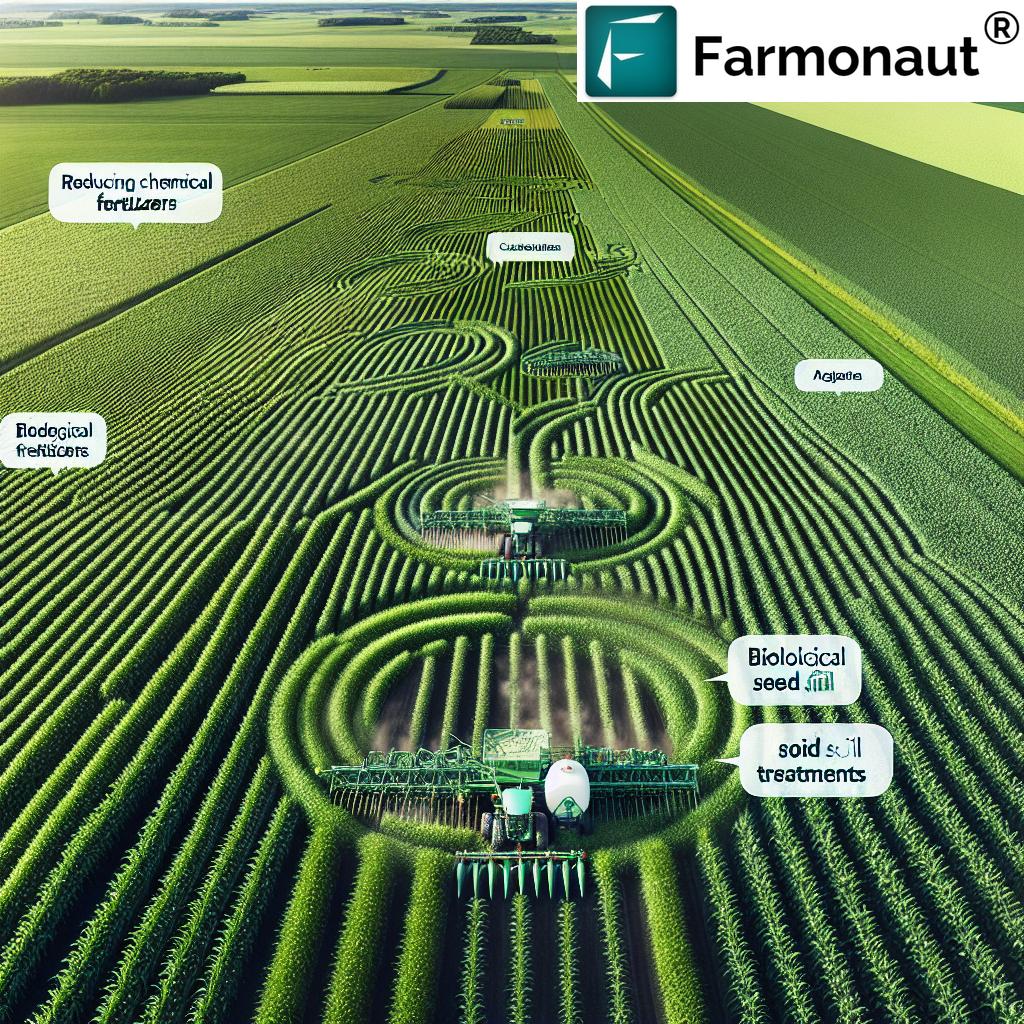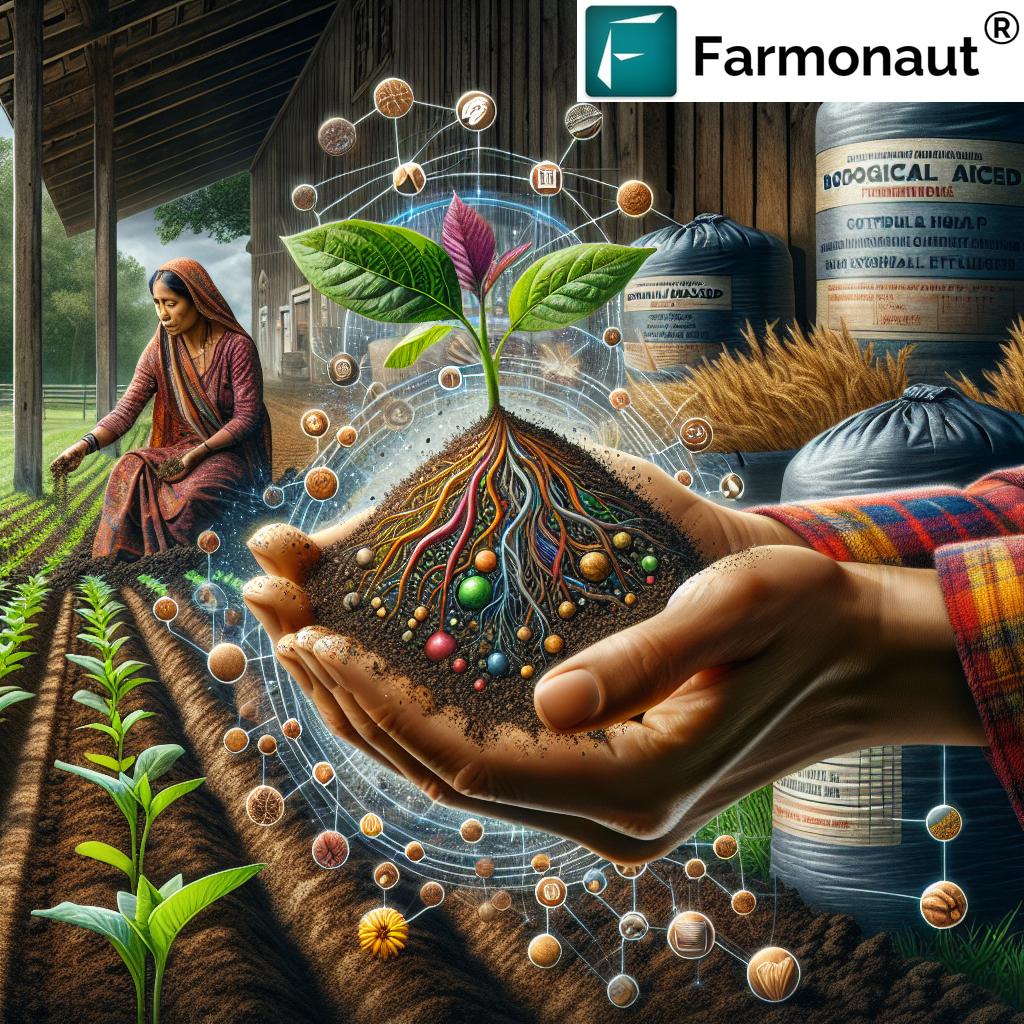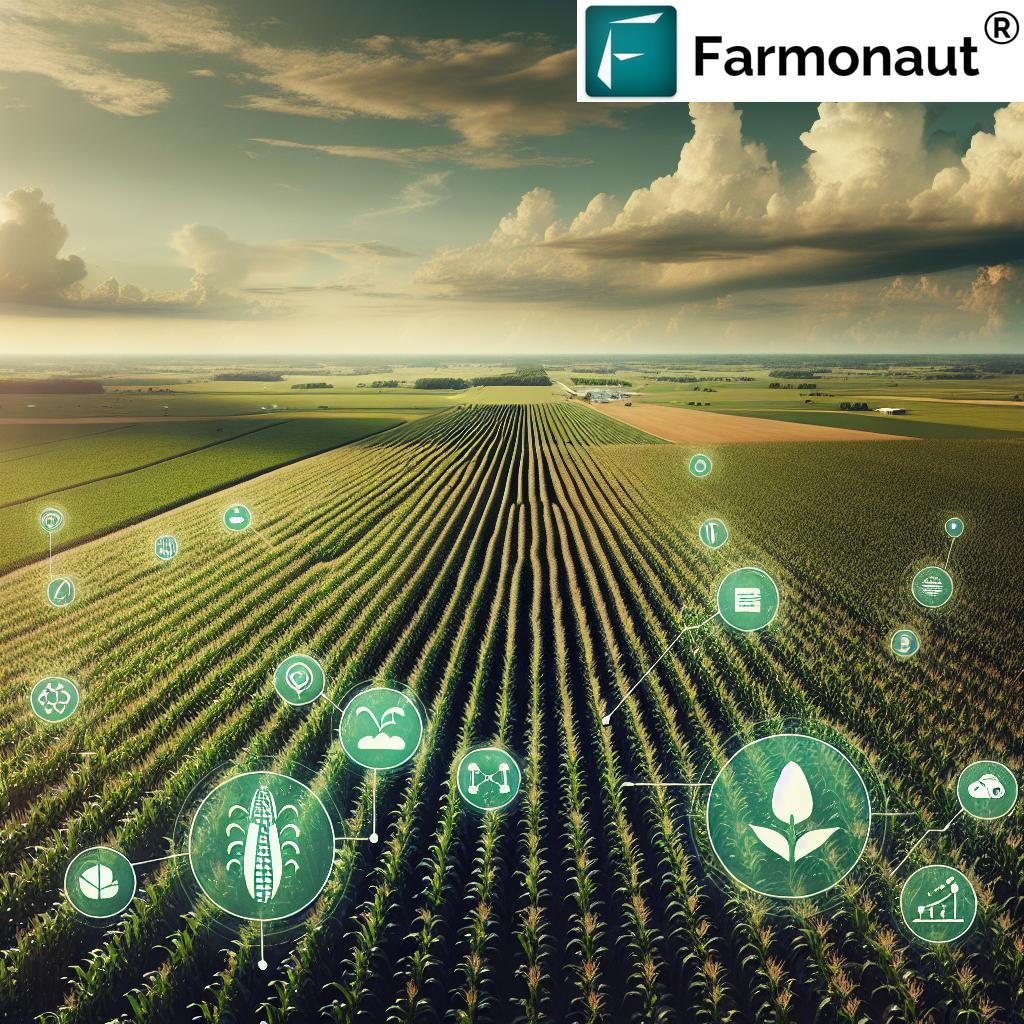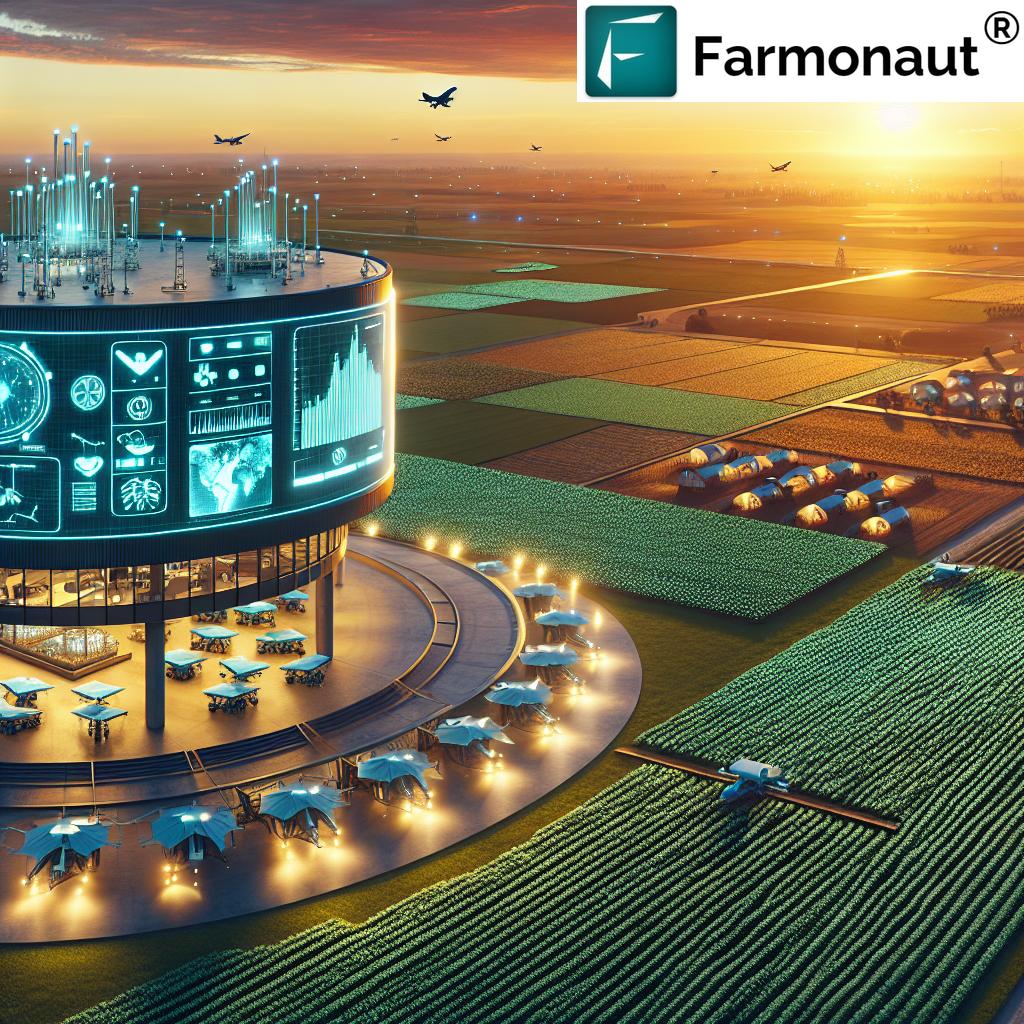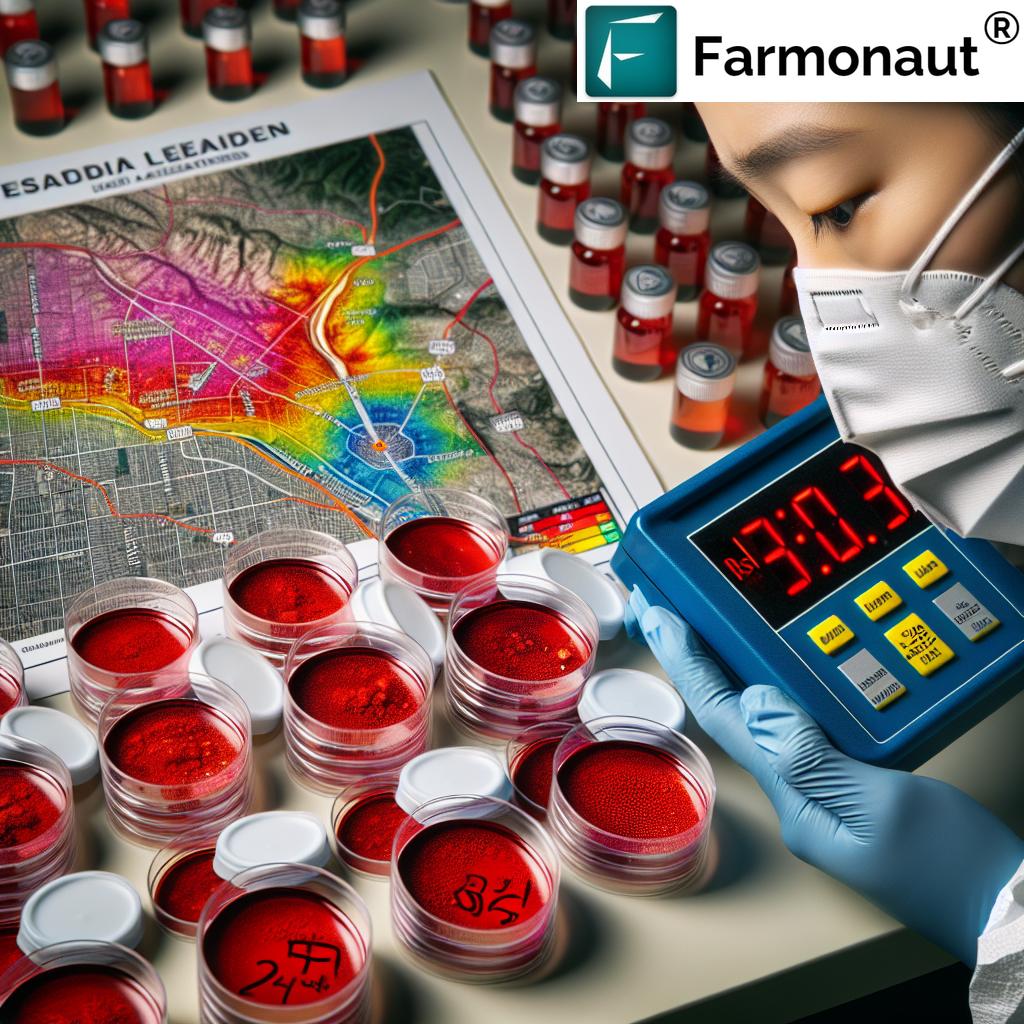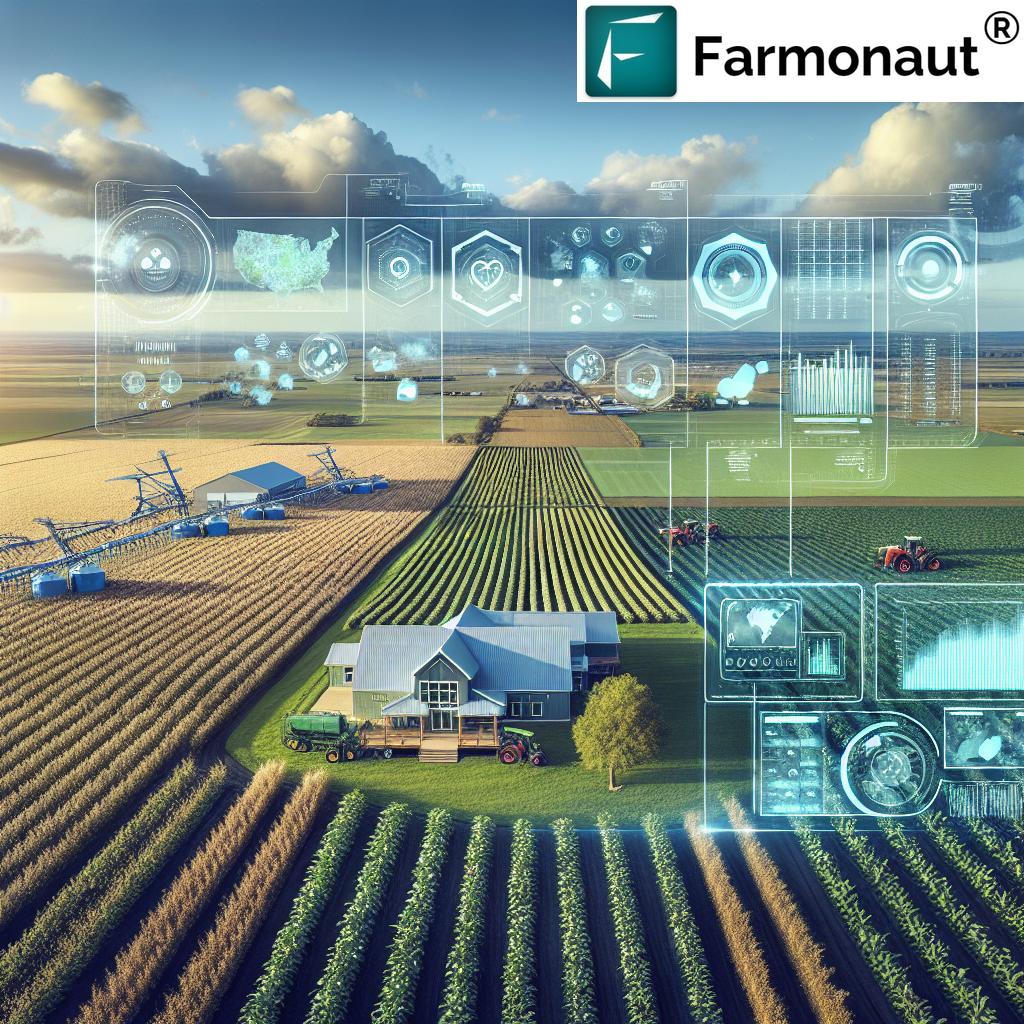“Iowa farmers using biologically based methods have seen up to a 20% increase in crop yields since 2020.”
5 Biologically Based Breakthroughs Boosting Iowa Crop Yields
Introduction: The New Era of Biologically Based Agriculture in Iowa
As the world faces evolving food production challenges, biologically based agriculture has emerged as a beacon of hope—especially within Des Moines, Iowa, a region recognized for agricultural innovation. We’re witnessing a global transition from heavy reliance on chemical fertilizers towards more natural, sustainable food production systems. Inspiring this revolution, notable microbiologists like Mariangela Hungria—recently honored with the World Food Prize Foundation’s top award—have devoted decades to developing science-backed, biological seed and soil treatments that are already transforming farm fields from Brazil to Iowa.
Our exploration in this blog highlights the five top biologically based breakthroughs, demonstrating how these environmentally aware technologies are boosting crop yield improvement, reducing our fertilizer footprint, and advancing agricultural production methods for a more secure, sustainable future.
5 Biologically Based Breakthroughs Boosting Iowa Crop Yields
For over forty years, pioneers like Hungria have championed biologically based approaches in world agriculture, challenging the status quo of chemical fertilizer dependency. Today, Iowa farmers are embracing these innovative solutions with stunning results—higher yields, healthier soils, and a brighter future for sustainable food. Let’s delve into the top five advancements reshaping our state’s food system.
-
1. Microbial Inoculants: Engineered Allies from the Soil
Microbial inoculants—technologies involving beneficial bacteria and fungi—are used as biological seed treatments or applied directly to fields to enhance root growth, nutrient uptake, and plant immunity.
Iowa’s thriving corn and soybean industries have benefited from these soil-based breakthroughs, propelled by advances made in Brazilian agriculture. Hungria’s research, for example, demonstrated how native rhizobia bacteria, when added to legume seeds, reduce fertilizer usage and naturally boost nitrogen availability.- Key benefits: Heightened plant resilience, improved nutrient efficiency, sustainable food production, and higher overall crop yields
- Used by thousands of Iowa farmers experimenting with various microbe blends tailored to local soils.
-
2. Biofertilizers: Nature’s Solution for Reducing Chemical Inputs
Biofertilizers rely on living microorganisms (such as Azospirillum, Azotobacter, and mycorrhizal fungi) to stimulate soil fertility. Instead of synthetic chemicals, these biological agents unlock nutrients already present in the soil, promoting more efficient agricultural production and helping us scale back on chemical fertilizer expenses.
- Key benefits: Cost savings for farmers, enhanced soil structure, lower greenhouse gas emissions, and healthier crops
- Widely seen as a top method for reducing chemical fertilizers and creating resilient food supply chains in Iowa.
-
3. Cover Crops: Living Barriers for Soil Protection and Health
The cover crop movement—involving the planting of non-cash crops like clover, rye, or radishes during off-seasons—fortifies the soil against erosion, suppresses weeds, and supports soil microbial communities. Iowa’s rolling landscapes now feature cover cropping as a trusted strategy in sustainable food production.
- Key benefits: Prevents nutrient loss, improves water infiltration, increases organic matter, and diversifies field biology
- Accelerates soil treatment for farmers, with studies showing year-over-year boosts in crop yield improvement from this practice alone.
-
4. Adaptive Crop Rotations: Enhancing Diversity and Systemic Health
Adaptive crop rotation isn’t just a traditional practice—when integrated with modern biological knowledge, it turns into an agricultural force multiplier. Rotating corn, soybeans, and specialty crops, while leveraging data-driven decisions (such as those offered by digital platforms like Farmonaut, see Large Scale Farm Management), preserves soil health, disrupts pest cycles, and creates sustainable food systems for Iowa’s demanding seasons.
- Key benefits: Increases biodiversity, supports beneficial insects, and reduces the need for synthetic products
- Combines the best of traditional knowledge and innovative agricultural production methods, amplified by precision monitoring tools.
-
5. Compost and Organic Amendments: Recycling Life into the Land
Turning crop waste, manure, and other organic materials into compost delivers a triple win: reduction of waste, restoration of soil biology, and increased nutrient retention. Iowa’s farms are steadily adopting compost applications guided by biology in agriculture, helping build resilient soils that store water and cycle nutrients for sustained yield gains.
- Key benefits: Revitalizes soil food webs, lowers input costs, and sequesters carbon—driving productivity and climate resilience for farms across the world.
- Supported by data from remote satellite platforms such as Farmonaut’s Carbon Footprinting Solution for agribusiness, tracking the impact of organic amendments on field emissions and sustainability.
“Switching to sustainable agriculture has reduced chemical fertilizer use in Iowa by nearly 15% over the past five years.”
Comparative Table: Breakthroughs at a Glance
For clarity and fast comparison, here’s how the top methods stack up in terms of crop yield improvement, fertilizer reduction, environmental impact, and adoption in Iowa.
| Breakthrough Name | Description | Estimated Yield Increase (%) | Reduction in Chemical Fertilizer Use (%) | Environmental Benefit | Adoption Rate in Iowa (%) |
|---|---|---|---|---|---|
| Microbial Inoculants | Beneficial bacteria/fungi applied to seed/soil to fix nutrients and improve root health. | 8–20 | 15–22 | Better nutrient cycling, soil biodiversity, lower N runoff | 34 |
| Biofertilizers | Microbes added to boost nutrient efficiency; alternative to chemical N/P fertilizers. | 5–13 | 12–20 | Reduced chemical load, CO₂ savings, improved soil health | 41 |
| Cover Crops | Crops planted off-season to protect, nourish, and repair soils. | 4–10 | 10–15 | Erosion control, higher organic matter, pest suppression | 65 |
| Adaptive Crop Rotation | Strategic alternation of crops to enhance yield and disrupt disease cycles. | 7–15 | 7–13 | Less pest pressure, year-round soil cover, more biodiversity | 78 |
| Compost & Organic Amendments | Adding decomposed organic material for nutrition and structure. | 5–12 | 12–19 | Sequesters carbon, recycles nutrients, cuts waste | 58 |
Farmonaut: Advanced Technology Driving Sustainable Agriculture
While biologically based agriculture is transforming Iowa’s food system at the ground level, technology is redefining how we monitor, manage, and scale sustainable production. Farmonaut stands at the forefront of digital transformation, integrating satellite imagery, artificial intelligence, and blockchain for smarter, data-driven farming.
Satellite-Based Crop Health Monitoring
-
Using multi-spectral satellite data, Farmonaut delivers real-time NDVI (Normalized Difference Vegetation Index) maps, soil moisture readings, and stress alerts directly to Iowa farmers. These insights allow us to pinpoint underperforming areas, optimize irrigation, and time applications of biological treatments with precision.
-
Farmonaut Large Scale Farm Management streamlines collective data analysis and logistical planning for cooperatives and agribusinesses.
Jeevn AI Advisory System
-
Farmonaut’s Jeevn AI system provides instant, customized farming advice. By interpreting field-specific weather, health, and soil data, it gives concrete recommendations—like when to seed a cover crop, apply a biofertilizer, or rotate crops for maximum yield and sustainability.
Blockchain-Based Traceability
-
With Farmonaut Product Traceability, agricultural supply chains become transparent and fraud-proof—consumers and regulators can trace food and fiber sources with absolute confidence, underpinning sustainable food production from Iowa to the world.
Fleet, Resource, and Carbon Management
-
Advanced Fleet Management tools help Iowa operations coordinate vehicles and machinery, minimizing downtime and reducing costs—key for those managing multiple sustainable practices across thousands of hectares.
-
To meet today’s climate responsibilities, Farmonaut Carbon Footprinting offers instant analytics on farm emissions. We can immediately see the soil carbon sequestered with compost or the reduced emissions achieved by swapping chemical fertilizers for biology-based solutions.
Digital Access & API Integration
-
Farmonaut serves both individual and large-scale clients through intuitive Android, iOS, and browser apps—delivering instant field reports, advisory, and management tools. Our Farmonaut API and Developer Docs empower Iowa’s research institutions and ag businesses to bring satellite and AI insights directly into their digital ecosystems.
-
For financial access, Farmonaut Crop Loan and Insurance Verification expedites claim approvals and ensures honest reporting—helping Iowa farmers secure their livelihoods while embracing new agricultural production methods.
Frequently Asked Questions
What is biologically based agriculture?
Biologically based agriculture uses natural organisms and ecological processes—such as beneficial microbes, cover crops, and compost—to manage soil fertility, optimize plant health, and reduce our reliance on synthetic chemicals for food production. This approach enhances sustainability, environmental health, and long-term crop yields.
How do biological seed treatments improve crop yields in Iowa?
Biological seed treatments infuse seeds with beneficial bacteria or fungi. These microbes form a symbiotic relationship with the emerging plant, helping it access nutrients and resist disease from the first days of growth—which leads to stronger plants and ultimately higher yields.
Why is reducing chemical fertilizer use critical for Iowa’s farmers and environment?
Excessive chemical fertilizer use can pollute rivers and lakes, degrade soil health, and increase farm input costs. By adopting biologically based alternatives, Iowa farmers can safeguard both their bottom lines and our natural resources for future generations.
How does Farmonaut help Iowa farmers adopt and monitor sustainable practices?
Farmonaut offers real-time satellite analytics, AI-powered farm advisory, and blockchain traceability—all in easy-to-use apps and APIs. With Farmonaut, we can monitor crop health, optimize resource use, and get timely expert advice, paving the way for more sustainable and profitable farming systems.
Conclusion: Shaping Iowa’s Food Future with Biologically Based Innovation
By uniting biologically based agricultural breakthroughs with the latest in digital technology, Iowa stands as a global standard for food system resilience and sustainability. From the visionary work of Hungria in Brazil to the honest, hard work of Iowa’s farmers, we’re seeing proven increases in crop yields, reductions in chemical fertilizer use, and healthier farmland decade after decade.
Optimizing biological seed and soil treatments, leveraging cover crops and crop rotations, and harnessing the strength of digital tools like Farmonaut is the path forward. As leaders in environmentally responsible agricultural production, we are committed to continuous improvement and to feeding the world in smarter, healthier ways—today, tomorrow, and far into the future.
Ready to revolutionize your own fields? Explore the Farmonaut Crop Plantation & Forest Advisory to see how biology and technology can work together for you, or join other Iowa growers already tracking their sustainability journey with real-time carbon analytics.
For more information, access Farmonaut’s comprehensive and accessible platform on any device, or connect via API integration for deeper analytics.

